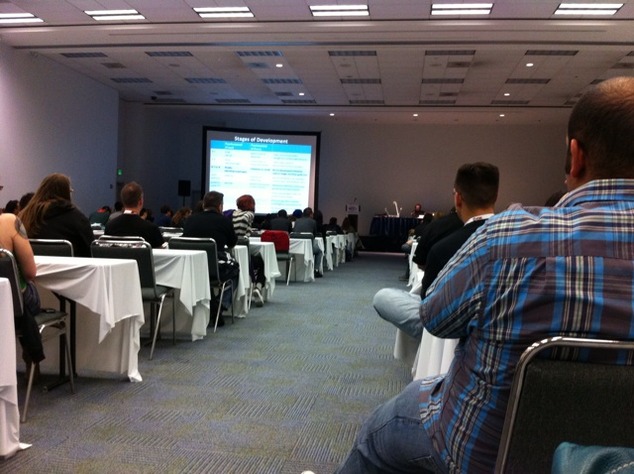Comics Bulletin writer Laura Akers attended one of my WonderCon presentations this month and later interviewed me about some things I had to say about what goes on beneath Batman’s cowl.
My 2012 WonderCon panels:
“Psychology of Batman” Robin Rosenberg & Travis Langley. My part: “Batman vs. Hamlet”
“Lessons Learned from Batman about Female Superheroes and Trauma: Resilience, Recovery, & Relaunch.” Andrea Letamendi, Robin Rosenberg, Travis Langley, & Bryan Q. Miller.
“Focus on Bob Schreck.” Bob Schreck & Travis Langley.
“All I Really Need to Know, I Learned from Batman and Bart, Man: Embiggening Brains without Crayon Implant.” Travis Langley, E. Paul Zehr, & Karma Waltonen.

Interview by Laura Akers
This year’s Comic Arts Conference at Wondercon was really diverse. From panels that carefully analyzed how meaning is created on the standard comic-book page to the tension between biology and technology in Batman and Iron Man to how comics are used in the classroom, there was something for everyone. Travis Langley, author of the upcoming Batman and Psychology: A Dark and Stormy Knight, gave us two presentations, one on how he uses Batman to teach psychological concepts to his students and a second on the question of Batman’s personal psychological issues and possible diagnosis. His analysis of Batman was so interesting that we had to ask some follow-up questions:
Laura Akers for Comics Bulletin: In your classes, you use Batman and related characters (from the comic books, movies and TV) to talk about specific psychological conditions. Why does the Batman universe lend itself so well to discussing these kinds of issues?
Travis Langley: He’s the superhero with no superpowers. His origin taps into a primal fear that we all understand, but even before that origin, his creators Bob Kane and Bill Finger invested our primal fears in his very look. They created a hero we could all imagine might exist in real life — no secret formula, magic ring or rocket to Earth required. He’s the part of us that wants to scare life’s bullies away… [Go to Comics Bulletin for complete interview.]





 Excerpt from
Excerpt from